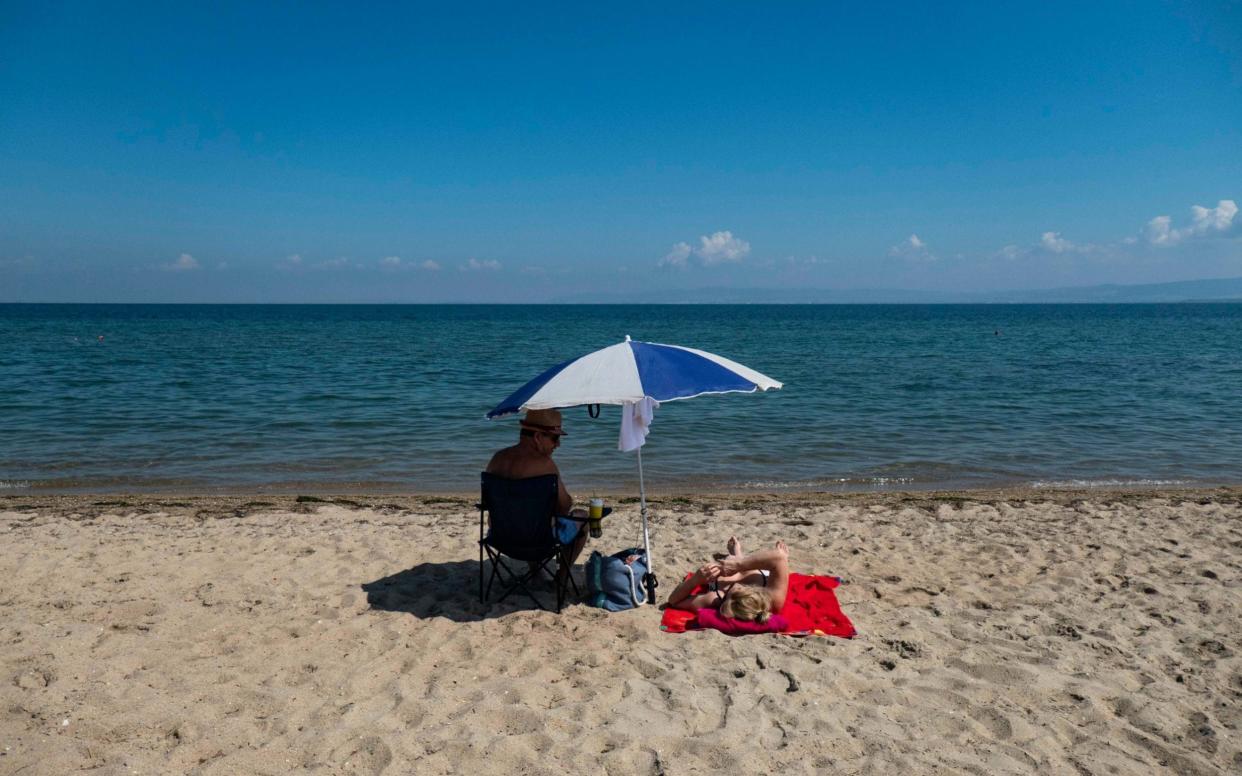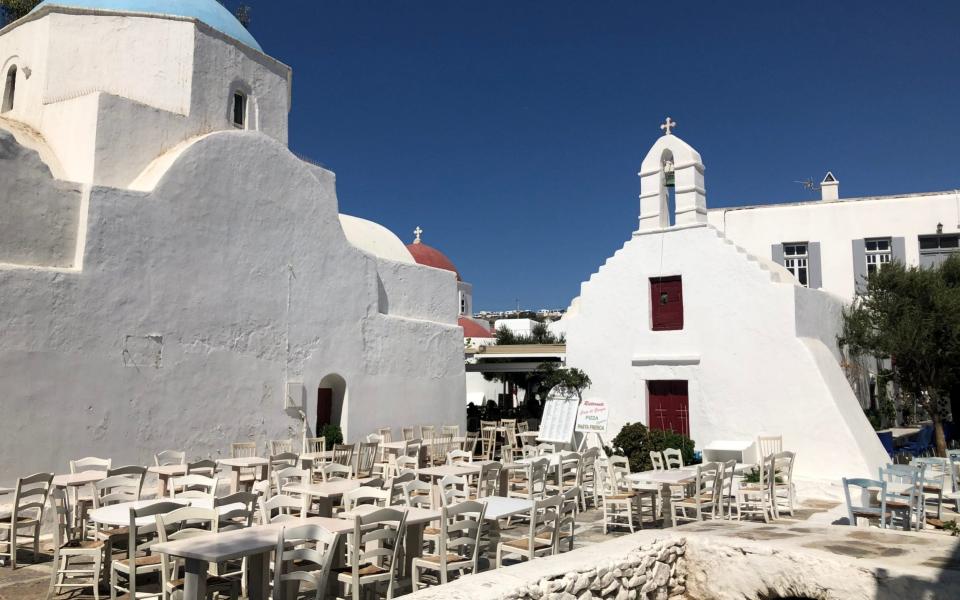Empty sun loungers cast long shadow over deserted Greek beaches

It’s early evening in Mykonos town and the sunset selfie-seekers are out in full force. Domestic and international tourists alike mill around ‘Little Venice’, the Cycladic island’s top attraction, posing beneath white-washed windmills and snapping the sun as it sets over the glistening Aegean.
Mykonos is made for Instagram. It’s highly stylized hotels and beach clubs draw a predominantly young and wealthy crowd. As revellers sip cocktails in bars along the waterfront, it feels like business as usual on Greece’s priciest island, despite the uptick in covid-19 cases across Europe.
But the streets behind the waterfront tell a different story. These narrow lanes lined with clothing boutiques, jewellery and souvenir shops usually teem with day-trippers from cruise lines that tour the Cycladic islands. This week, bored looking shop assistants talk amongst themselves, glancing dejectedly up and down the empty streets.
Maria Rampias owns Mykonos Sandals, a leatherwear business in Little Venice. Her grandfather first opened the shop in 1948. “If there were cruises it would be busy,” she says.
In 2019, Mykonos welcomed 787,490 cruise-passengers, the third largest number in Greece, after Piraeus and Santorini. Following the outbreak of the pandemic, Greece closed its ports to all cruise ships as part of its nationwide lockdown.

The country plans to open six of its cruise ports from August 1st, but the island’s mayor, Konstantinos Koukas fears it is too late in the season for cruises to make any real difference to ailing businesses. “Even if they do start again, we don’t know if they will have visitors on board,” he says.
Rampias says businesses that own their properties will likely weather the storm, but those with leases may struggle to open next year, due to the island’s high rents. “It depends on how much people have put aside in the last few years,” she adds.
And many will have struggled to save after almost a decade of austerity following Greece’s 2009 sovereign debt crisis, which saw GDP contract 9.1 per cent in 2011. The recession crippled the country, leading to mass unemployment, pension and wage cuts, and heavy privatisation.
Greece’s economy has recovered thanks in part to tourism revenue; the sector makes up 18 per cent of the country’s GDP and employs one in five Greeks. But the success story is now looking like unhealthy overreliance as the pandemic has ground the world’s travellers to a halt. In May, the European Commission forecast Greek GDP would contract by 9.75 per cent, deeper than the last recession, but has since revised its forecast to a milder 9 per cent.
Businesses who weathered the last crisis are bracing for another blow. For the first time, five-star resorts built into bays and hills across the island stand eerily empty. The Myconian Collection is Mykonos’ largest luxury accommodation chain. Its ten, family-owned properties are all closed this year. The Myconian did not reply to The Telegraph’s queries on its decision.
Smaller hotels are faring better, but prices have dropped significantly, and average capacity across the island is at roughly 25 per cent, according to Mayor Koukas. Markos and Jessica run White and Grey, a small hotel a few kilometres outside town. They felt obliged to drop their room prices by almost 50 per cent because of similar cuts offered by their competitors.

Through April and May the couple contemplated remaining shut themselves. “But finally we had to balance out our renovation costs,” says Jessica. “It was like playing poker.” While occupancy remains low – three out of ten rooms are booked – they are holding out hope for August.
Mayor Koukas has had a busy week. On Tuesday, Greece’s minister for citizen’s protection came to Mykonos to step up enforcement of regulations at the island’s more unruly establishments. 110 police officers have been provided to support 24-hour inspection efforts.
In June, a video of a crowded dance party at Alemagou beach bar went viral. Local authorities imposed a 60-day closure, and €20,000 fine for the flouting of safety regulations. The bar reopened 15 days later, according to local reports. “They should do better, and we’re after them,” said Koukas of the beach bars.
Although visits were at an all time low in June and July, arrival rates to the island’s airport are picking up rapidly, coinciding with an uptick in cases across Greece. While the country’s decisive handling of the virus meant it has recorded only 203 deaths to date, daily cases are the highest they’ve ever been. 65 new cases were reported in the latest 24-hour period, 34 of which came from international arrivals.
On Thursday night at Scorpios, an exclusive beach club frequented by models and influencers, groups of party-goers are settling in for the sunset. Masked wait staff deliver €300 wine bottles to low tables with stunning views across a bay. A hundred or so more people are queuing outside, desperate for a seat. “We’re not worried because it’s all open air,” says Diago, a young man who flew from the UK with a stop off in Italy. “It’s no different to the parks in London.”

